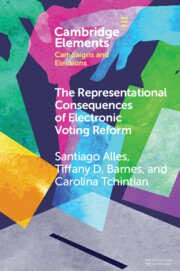We estimate how asset prices respond to a range of political shocks, including changes in a country's economic stewardship, national elections, coup d'états, wars, and terrorist attacks. Using an event study approach and daily prices from the Buenos Aires exchange (Argentina) between 1967 and 2020, we find that stock-market volatility increases in the days immediately following major policy-shifting events. These results hold irrespective of whether returns are measured in nominal terms, in local consumption units, or in US dollars. The most significant increase in post-event risk is associated with irregular government turnovers. Volatility also increases in the days immediately following a defeat in an international war, national elections, and changes in the country's economic stewardship. No changes in stock-market volatility occur, however, after terrorist attacks or when the date of a new administration's inauguration is publicly known and determined sufficiently far in advance.
